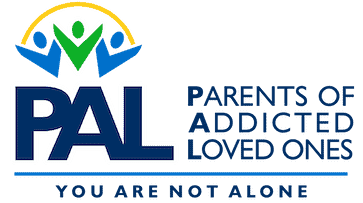What to say…
Nuggets and Gems to keep in mind, and keep in the mind of an addicted loved one.
Nuggets and Gems
“Nuggets” are helpful sayings for family members to keep in mind and use as affirmations over the long haul.
“People don’t change when they see the light, they change when they feel the heat”
“This is a marathon, not a sprint”
“The faintest ink is better than the best memory”
“Baby-steps”
“Sometimes it’s best to just listen and say nothing”
“Resilience comes from coping with adversity”
“This too, shall pass”
“I’m picking my battles”
“I’m getting comfortable with silence”
“Parents can give their children everything but common sense”
“When it comes to our children, every parent is blind” -Yiddish saying
“If you don’t do the work, you don’t get better” -AA saying
“Short-term pain for long-term gain” -AA Saying
“I’m learning to bite my tongue” -PAL Mom
“The answer to the mystery is always in the history”
“Words are weak adversaries of drugs” -William L. Fountain
“To a teenager, the word “NO” is an aphrodisiac”
“Desperation is the prelude to surrender” -Marushka
“If nothing changes, nothing changes” -AA saying
“I need to stop trying to choreograph his recovery”
“Gems” are helpful statements you can say to your loved-ones.
Statements conveying the message that you see them as empowered adults, not helpless children.
“I love you and I will always love you, no matter what.”
“I believe in you.”
“I’m pulling for you.”
“I’m praying for you.”
“I know you’re going to beat this problem.”
“You are an adult now, and I hope someday you can forgive me for having treated you like a child for too long.”
“You’re an intelligent person and I believe you will solve this problem.”
“How can I help you help yourself.”
“I will never detach from you. But I am detaching from certain problems of yours so I don’t rob you of the self-esteem you will get from solving your problems yourself.”
“You can always ask me for help. But, please be specific about your request. I’m trying to stop reading your mind, thinking for you, anticipating your words, and offering what I think you need.”
“When you ask me for help, I will consider your request, discuss it with those I trust, and get back with you very soon.”
“My love for you is unconditional, but my help for you is not. I don’t want to make the mistake of giving you the kind of short-term help that ends up hurting you in the long-term.”
“I am educating myself so I can learn better ways to help you.”
“I am learning to see the difference between growth pain and wasted pain.”
“I will always love you and always help you. But my help may be limited to prayer, letters, words of encouragement, hugs, or sharing a meal together.”
“I’m not listening to your words, I’m noticing your actions.”
“I prefer to not speak with you at this time. Please communicate with me through texting, e-mail, or letters only. Thank you.”
“I hereby resign my job as your rescuer.”
“I’m not going to argue with you; let’s agree to disagree.”
“I’m asking you to act your age instead of your urge.”
